
views
Working with the Franchisor

Obtain the site criteria from your franchisor. The franchisor probably has a set of requirements that your business locations must satisfy. You should contact the franchisor to find out this set of requirements. For example, McDonald’s states that an ideal site would have at least 50,000 square feet. The building should also ideally be on a corner with a signalized intersection.

Receive training. Your franchisor will probably train you in how to select and evaluate an appropriate franchise location. Franchisors have extensive knowledge of how their franchises work in different locations depending on size, surroundings, and customer base. If you aren’t offered training, then ask if any is available.
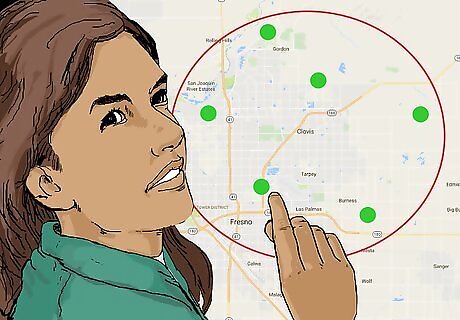
Identify your franchise territory. Some franchisors will give you a territory. This is the geographic area where you must open the franchise. If you open outside your geographic territory, then you will be trespassing on another franchisee’s location. The franchisor will identify the franchise territory, if there is one. This information should also be in the Franchise Disclosure Document that you received before signing your franchise agreement.

Connect with commercial real estate brokers. Your franchisor also probably has a network of real estate brokers who they do regular business with. They should put you in contact with someone. If not, ask the franchisor if there is a broker they recommend. You can also find a real estate broker on your own. They should advertise in the phone book or online. You can also ask another franchisee who they used, if anyone. Ask if they would recommend the broker.
Finding Available Commercial Space

Ask a broker for a list of sites. Once armed with your franchisor’s criteria, you can begin finding possible locations. Just as you comparison shop when looking to buy a house or rent an apartment, you should compare potential sites for your franchise.

Check the price. You want your business location to be within your budget. Look at your business plan and check how much you budgeted for commercial space. You should make sure that you don’t pay too much. Your franchisor might have a formula for you to use. For example, you might be encouraged to limit your occupancy costs to 10-15% of expected sales. If your annual sales are projected to be $400,000, then your occupancy costs shouldn’t exceed $60,000.
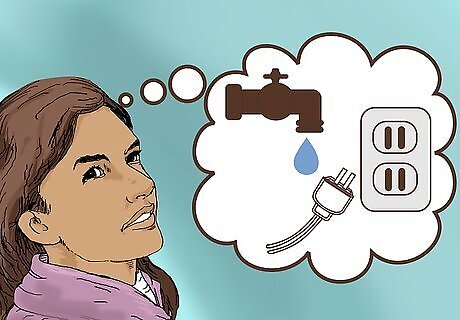
Remember the cost of utilities. Although your rent will make up most of your occupancy costs, you also shouldn’t forget about utilities—electricity, water, etc. Some leases include these costs, but other leases don’t. You’ll want to know the estimated costs before signing a lease or taking a serious look at a piece of property. If the landlord can’t estimate the cost of utilities, then contact the utility company and ask how much was paid in the previous year. Also check how much of a deposit you need to give the utility company.
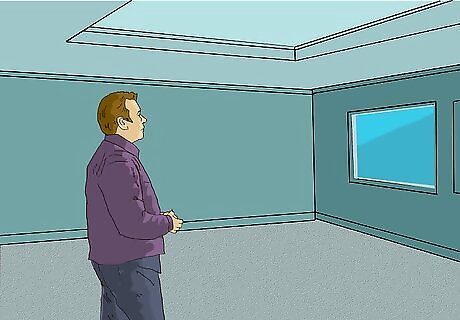
Make sure the space isn’t too large. You might find a great deal. For example, you could have budgeted $60,000, expecting to pay $30 a square foot for 2,000 square feet. If someone offers you 4,000 square feet at $15 a square foot, you might be tempted to snap it all up. However, bigger isn’t necessarily better. If your space is too large, then your business will look empty to consumers. That might suggest you aren’t a popular business, which could drive people away.
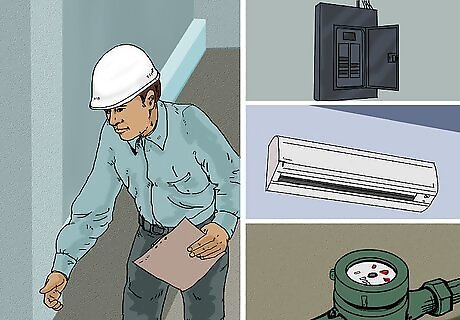
Check that the building isn’t too old. Some available commercial space is quite old and will not be suitable for a modern business that uses technology. If you don’t know whether the building is appropriate, then you might need to hire an engineer to review it. Make sure your possible commercial spaces have adequate: electricity telecommunications service air conditioning
Analyzing Possible Locations
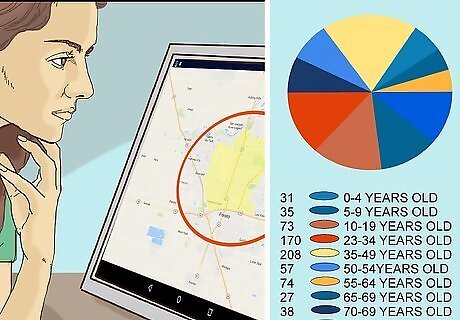
Look at the demographics of the area. You want to be in an area where you can reach appropriate customers. If your franchise is aimed at lower-income young people, then being in an upscale suburb might not be ideal. Your franchisor might perform a preliminary market analysis looking for favorable demographics and share that research with you. Relevant demographics include the following: education levels income age family size

Evaluate traffic patterns. If you are a retailer, you should spend some time analyzing traffic. You want to be readily accessible for people who are walking as they do their shopping but also to people who are driving by. You should look for the following: Is the foot traffic on one side of the street? Is the potential franchise location on the same side as the foot traffic? Will drivers have to make an unprotected turn to reach your site? How accessible is it to traffic? Is it even visible from the road? How many people walk or drive by during an hour? You might have to count and then give the franchisor this information.
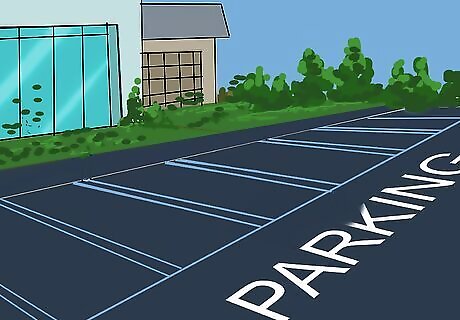
Check if there is sufficient parking. Parking is crucial, so you should routinely visit the site. Go at different times of day to check whether there is sufficient parking. At certain times of the day, restaurants might be very busy and dominate the parking lot. You want to make sure sufficient parking is available for all hours when your franchise will be open. Also check whether there is a nearby parking garage where customers could park, or if there is an open lot they could use that is nearby.

Find the location of your competitors. It’s not ideal to open a franchise right beside your biggest competitor. Accordingly, you should check out where they are located. Look for competitors in the same shopping center but also within a certain radius. Also analyze whether your nearest competitors are strong businesses or not. If they are a mom-and-pop store, then they might not pose much competition. Watch the traffic flow into the business and ask how established they are.
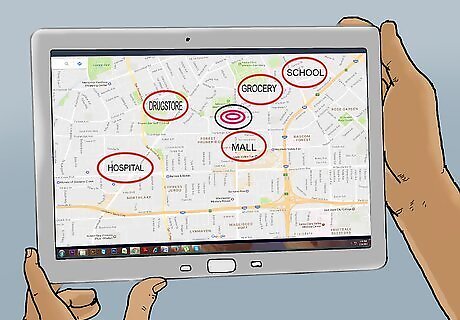
Check if there are traffic generators nearby. You want to be situated near tenants that can help drive traffic to your business. Ideally, nearby businesses will be the type that have repeat customer traffic. For example, the following are common traffic generators: hospitals grocery stores drugstores malls office complexes schools
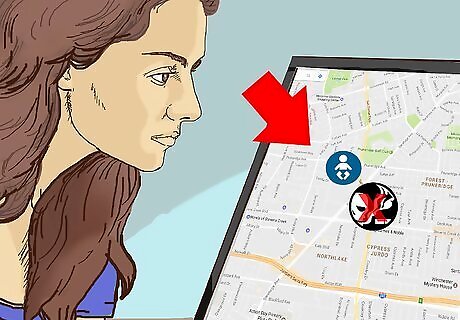
Consider whether other tenants are compatible. You want your traffic generators to be compatible with your own business. A lot of foot traffic doesn’t help you if they are consumers who you aren’t targeting. For example, if you are opening a day care, then you don’t want to be near a cigarette shop.
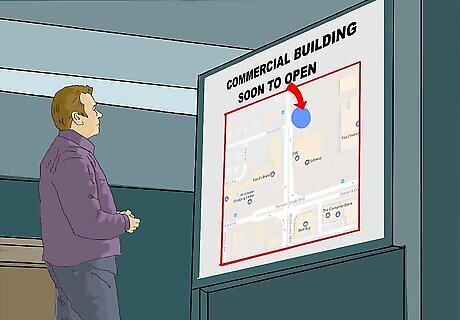
Discover if new development projects are planned. You might find the perfect location—only to have a new development be built within a year which pulls away all of your traffic. For this reason, you want to stay on top of what new developments are in the works. You should visit the municipality’s land use office and check to see what new building projects are being planned. If you see new commercial space in development, then you should analyze whether it will impact traffic to your franchise.
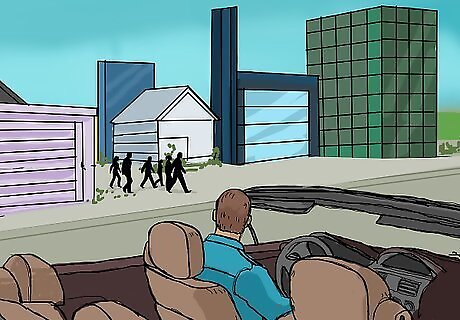
Evaluate the security of the area. You want customers and employees to feel comfortable visiting your business. Look around and note any run down or abandoned buildings. Visit the location at different times of day and check if homeless people or others congregate outside the business.
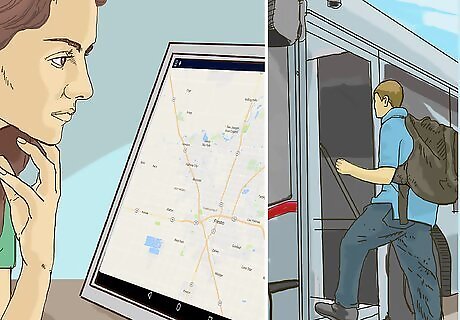
Check how close you are to potential employees. If you need to hire people to work for you, then you need to be accessible. You should consider where your employees will be coming from. For example, if you open in an expensive suburb, then you probably can’t count on employees living nearby. Instead, they may have to travel from the city or rural areas. See how close you are to public transit. Your employees might need to take the bus to get to work. Check if there is a bus stop or train stop nearby.
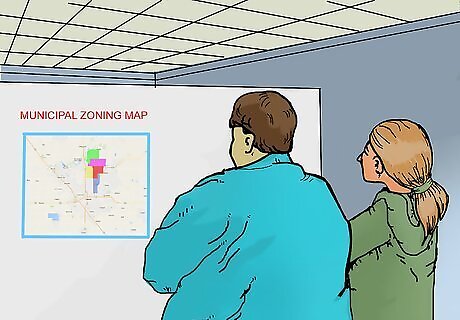
Discover what ordinances apply. Most municipalities have zoning laws, which limit where businesses can be located as well as how they develop the physical space. You’ll need to keep an eye on any local ordinances that apply to your business. Your franchisor should help you understand ordinances. If not, you can stop into the municipality’s zoning offices to check about requirements.

Talk to other franchisees. Other franchise owners can be a good source of information about what to look for in a location. They might have tips that you won’t get from your franchisor. Call up local franchisees and ask if they can talk to you. When you meet, ask them what they like about their current location and what they would recommend that you look for.

Obtain approval from your franchisor. Before signing a lease, you may have to show the space to your franchisor. Some franchisors might request that you submit floor plans to them. Even if you aren’t required to seek the franchisor’s approval on a location, you should still get it. If the franchisor doesn’t approve the location, then you need to go back out and find another one.



















Comments
0 comment